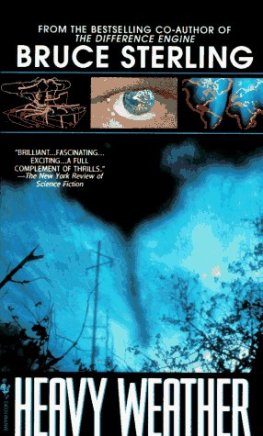Bruce Sterling - The Manifesto of January 3, 2000
Here you can read online Bruce Sterling - The Manifesto of January 3, 2000 full text of the book (entire story) in english for free. Download pdf and epub, get meaning, cover and reviews about this ebook. genre: Science fiction. Description of the work, (preface) as well as reviews are available. Best literature library LitArk.com created for fans of good reading and offers a wide selection of genres:
Romance novel
Science fiction
Adventure
Detective
Science
History
Home and family
Prose
Art
Politics
Computer
Non-fiction
Religion
Business
Children
Humor
Choose a favorite category and find really read worthwhile books. Enjoy immersion in the world of imagination, feel the emotions of the characters or learn something new for yourself, make an fascinating discovery.

- Book:The Manifesto of January 3, 2000
- Author:
- Genre:
- Rating:4 / 5
- Favourites:Add to favourites
- Your mark:
- 80
- 1
- 2
- 3
- 4
- 5
The Manifesto of January 3, 2000: summary, description and annotation
We offer to read an annotation, description, summary or preface (depends on what the author of the book "The Manifesto of January 3, 2000" wrote himself). If you haven't found the necessary information about the book — write in the comments, we will try to find it.
The Manifesto of January 3, 2000 — read online for free the complete book (whole text) full work
Below is the text of the book, divided by pages. System saving the place of the last page read, allows you to conveniently read the book "The Manifesto of January 3, 2000" online for free, without having to search again every time where you left off. Put a bookmark, and you can go to the page where you finished reading at any time.
Font size:
Interval:
Bookmark:
Bruce Sterling
The Manifesto of January 3, 2000
The rapidly approaching millennium offers a unique cultural opportunity. After many years of cut-and-paste, appropriation, detournement and neo-retro ahistoricality, postmodernity is about to end. Immediately after the end of the fin de siecle, there will be a sudden and intense demand for genuine novelty.
Any new year offers a chance for sweeping resolutions and brave efforts at self-reform. But the end of a millennium offers a rare and vital opportunity to bury all that is dead within us and issue proclamations of particular scope and ambition.
I suspect that a group that can offer a coherent, thoughtful and novel cultural manifesto on the target date of January 3, 2000 has a profound opportunity to affect the zeitgeist. (On January 1, everyone will be too hung over to read manifestos; on January 2, nobody's computers will work. So naturally the target date must be January 3.) In this preliminary document, I would like to offer a few thoughts on the possible contents of such a manifesto.
The central issue as the new millennium dawns is technocultural. There are of course other, more traditional, better-developed issues for humankind. Cranky fundamentalism festers here and there; the left is out of ideas while the right is delusional; income disparities have become absurdly huge; these things are obvious to all. However, the human race has repeatedly proven that we can prosper cheerfully with ludicrous, corrupt and demeaning forms of religion, politics and commerce. By stark contrast, no civilization can survive the physical destruction of its resource base. It is very clear that the material infrastructure of the twentieth century is not sustainable. This is the issue at hand.
We have a worldwide environmental problem. This is a truism. But the unprecedentedly severe and peculiar weather of the late 1990s makes it clear that this problem is growing acute. Global warming has been a lively part of scientific discussion since at least the 1960s, but global warming is a quotidian reality now. Climate change is shrouding the globe in clouds of burning rain forest and knocking points off the GNP of China. Everyone can offer a weird weather anecdote now; for instance, I spent a week this summer watching the sky turn gray with fumes from the blazing forests of Chiapas. The situation has been visibly worsening, and will get worse yet, possibly very much worse.
Society has simply been unable to summon the political or economic will to deal successfully with this problem by using 20th century methods. That is because CO2 emission is not centrally a political or economic problem. It is a design and engineering problem. It is a cultural problem and a problem of artistic sensibility.
New and radical approaches are in order. These approaches should be originated, gathered, martialled into an across-the board cultural program, and publicly declared -- on January 3rd.
Global warming is a profound opportunity for the 21st century culture industry. National governments lack the power and the will to impose dirigiste solutions to the emission of carbon dioxide. Dirigiste solutions would probably not work anyway. It is unlikely that many of us could tolerate living in a carbon-dioxide Ration State. It would mean that almost every conceivable human activity would have to be licensed by energy commissars.
Industry will not reform its energy base. On the contrary, when it comes to CO2 legislation, industry will form pressure groups and throw as much sand as possible into the fragile political wheels. Industry will use obscurantist tactics that will mimic those of American right-wing anti-evolution forces -- we will be told that Global Warming is merely a "theory," even when our homes are on fire. Industry is too stupid to see planetary survival as a profit opportunity. But industry is more than clever enough to sabotage government regulation, especially when globalized industry can play one government off against the next.
The stark fact that our atmosphere is visibly declining is of no apparent economic interest except to insurance firms, who will simply make up their lack by gouging ratepayers and exporting externalized costs onto the general population.
With business hopeless and government stymied, we are basically left with cultural activism. The tools at hand are art, design, engineering, and basic science: human artifice, cultural and technical innovation. Granted, these may not seem particularly likely sources of a serious and successful effort to save the world. This is largely because, during the twentieth century, government and industry swelled to such tremendous high-modernist proportions that these other enterprises exist mostly in shrunken subcultural niches.
However, this doesn't have to be the case. With government crippled and industry brain-dead to any conceivable moral appeal, the future of decentered, autonomous cultural networks looks very bright. There has never been an opportunity to spread new ideas and new techniques with the alacrity that they can spread now. Human energy must turn in some direction. People will run from frustration and toward any apparent source of daylight. As the planet's levees continue to break, people will run much faster and with considerably more conviction.
Our cultural substance-abuse problem with CO2 may have very severe consequences to human happiness, but the immediate physical problem is rather well understood. Clever people, united and motivated, should be able to deal with this. Carbon dioxide is not a time-honored philosophical dilemma or some irreducible flaw in the human condition. Serious fossil-fuel consumption, as a practice on the grand scale, is only about 200 years old. The most severe rise in carbon emission occurred during the past fifty years. We're painfully dependent on this practice, but it's not as if we've married it.
It's a question of tactics. Civil society does not respond at all well to moralistic scolding. There are small minority groups here and there who are perfectly aware that it is immoral to harm the lives of coming generations by massive consumption now: deep Greens, Amish, people practicing voluntary simplicity, Gandhian ashrams and so forth. These public-spirited voluntarists are not the problem. But they're not the solution either, because most human beings won't volunteer to live like they do. Nor can people be forced to live that way through legal prescription, because those in command of society's energy resources will immediately game and neutralize any system of legal regulation.
However, contemporary civil society can be led anywhere that looks attractive, glamorous and seductive.
The task at hand is therefore basically an act of social engineering. Society must become Green, and it must be a variety of Green that society will eagerly consume. What is required is not a natural Green, or a spiritual Green, or a primitivist Green, or a blood-and-soil romantic Green.
These flavors of Green have been tried, and have proven to have insufficient appeal. We can regret this failure if we like. If the semi-forgotten Energy Crisis of the 1970s had provoked a wiser and more energetic response, we would not now be facing a weather crisis. But the past's well-meaning attempts were insufficient, and are now part of the legacy of a dying century.
The world needs a new, unnatural, seductive, mediated, glamorous Green. A Viridian Green, if you will.
The best chance for progress is to convince the twenty-first century that the twentieth century's industrial base was crass, gauche, and filthy. This approach will work because it is based in the truth. The twentieth century lived in filth. It was much like the eighteenth century before the advent of germ theory, stricken by septic cankers whose origins were shrouded in superstition and miasma. The truth about our physical existence must be shown to people. It must be demonstrated repeatedly and everywhere.
Font size:
Interval:
Bookmark:
Similar books «The Manifesto of January 3, 2000»
Look at similar books to The Manifesto of January 3, 2000. We have selected literature similar in name and meaning in the hope of providing readers with more options to find new, interesting, not yet read works.
Discussion, reviews of the book The Manifesto of January 3, 2000 and just readers' own opinions. Leave your comments, write what you think about the work, its meaning or the main characters. Specify what exactly you liked and what you didn't like, and why you think so.



